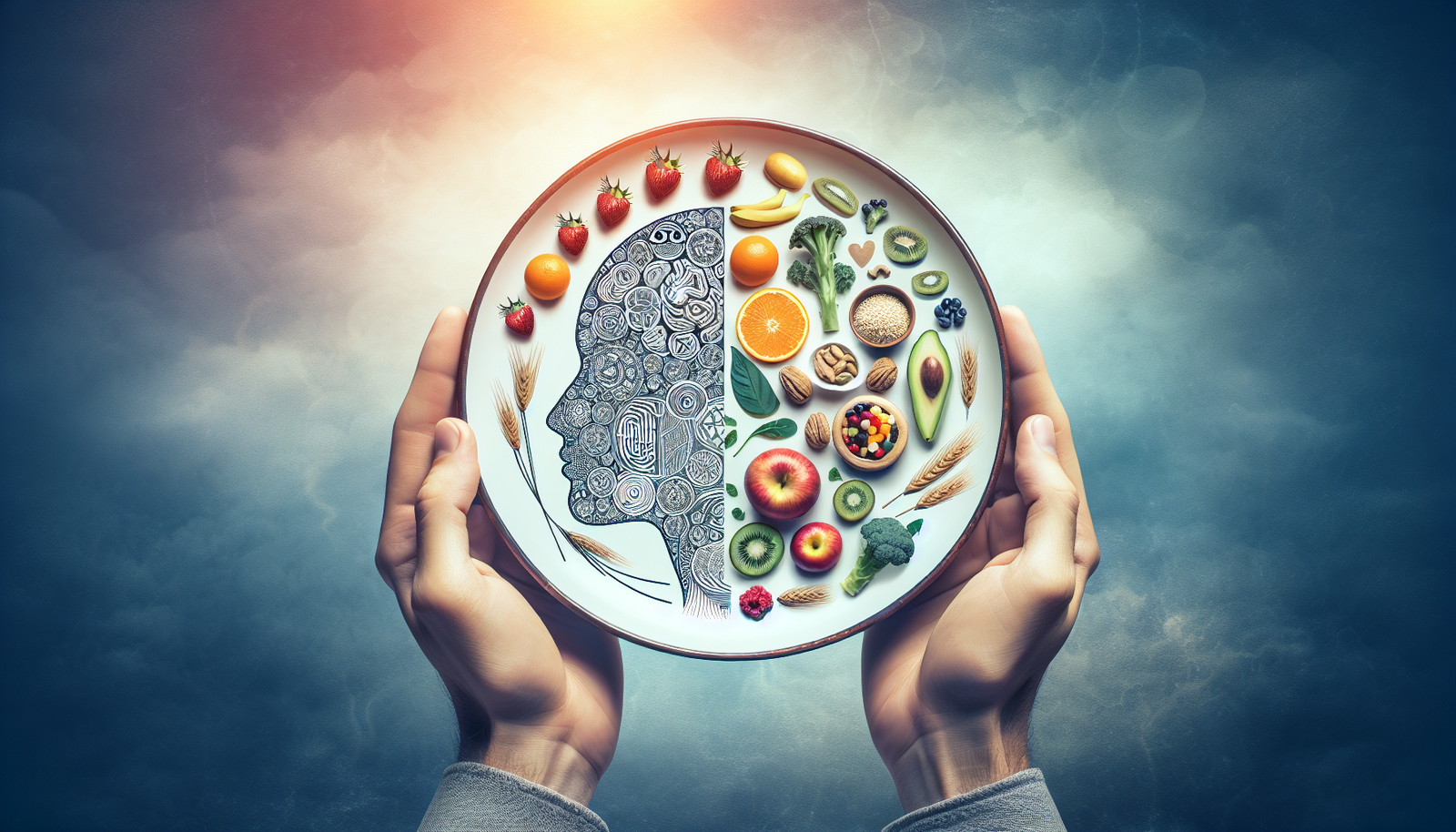Understanding the Role of Nutrition in Anxiety Management
Understanding the Role of Nutrition in Anxiety Management
The Link Between Nutrition and Mental Health
Nutrition plays a crucial role in overall health, including mental well-being and the management of anxiety disorders. Numerous studies indicate that a balanced diet rich in essential nutrients can significantly impact mood and anxiety levels. The connection between diet and mental health involves biochemical pathways, including the regulation of neurotransmitters, inflammation, and the gut-brain axis.
Key Nutrients for Anxiety Management
Omega-3 Fatty Acids
Omega-3 fatty acids, found in fish, walnuts, and flaxseeds, are known for their anti-inflammatory properties and their ability to enhance mood. Research suggests that individuals with anxiety disorders often exhibit lower levels of omega-3 fatty acids. Supplementing with EPA and DHA, the primary forms of omega-3s in fish, has been associated with reduced symptoms of anxiety and improved mental health outcomes.
B Vitamins
B vitamins, particularly B6, B12, and folate, are integral to the synthesis of neurotransmitters like serotonin, which regulates mood. Deficiencies in these vitamins can lead to elevated anxiety and depressive symptoms. Incorporating foods rich in B vitamins, such as leafy greens, legumes, eggs, and whole grains, may help improve mood stability and reduce anxiety.
Magnesium
Magnesium plays a significant role in regulating neurotransmitters and supporting brain health. This mineral is involved in managing stress, and its deficiency is linked to increased anxiety and irritability. Foods such as spinach, almonds, and dark chocolate are excellent sources of magnesium, thus contributing to anxiety reduction.
The Role of Amino Acids
Amino acids are the building blocks of proteins and are essential for producing neurotransmitters. Key amino acids related to anxiety management include:
-
Tryptophan: This amino acid is a precursor to serotonin. Foods that are high in tryptophan, such as turkey, eggs, and cheese, can help increase serotonin levels, potentially alleviating anxiety symptoms.
-
Glycine: Known for its calming effects, glycine supports neurotransmitter function and can help improve sleep quality. Sources include collagen-rich foods like bone broth and gelatin.
- Glutamine: An important amino acid for gut health, glutamine has been shown to impact mood and anxiety levels. It can be found in meat, fish, eggs, and dairy products.
The Gut-Brain Connection
The gut-brain axis is a bidirectional communication network that links the gastrointestinal tract and the brain. Research suggests that the gut microbiome plays a fundamental role in mental health, including anxiety levels. A healthy gut microbiome can influence neurotransmitter production, inflammation, and even stress response.
Probiotics and Prebiotics
Probiotics and prebiotics are crucial for maintaining a healthy gut microbiome. Probiotics are live bacteria found in fermented foods such as yogurt, kefir, and sauerkraut, while prebiotics are indigestible fibers that nourish beneficial gut bacteria, found in foods such as garlic, onions, and bananas. Studies indicate that a diet rich in probiotics can reduce anxiety and depressive symptoms, underscoring the importance of gut health in mental well-being.
Anti-Inflammatory Foods
Chronic inflammation in the body can adversely affect brain function and contribute to anxiety. Incorporating anti-inflammatory foods into the diet can help mitigate this risk. Key anti-inflammatory foods include:
-
Fruits and Vegetables: Berries, leafy greens, and cruciferous vegetables are rich in antioxidants and phytochemicals that can combat inflammation.
-
Turmeric: Curcumin, the active compound in turmeric, possesses significant anti-inflammatory properties. Adding turmeric to meals can not only enhance flavor but may also support mental health.
- Green Tea: Rich in L-theanine, which has been shown to promote relaxation and reduce anxiety, green tea can serve as a soothing beverage choice.
The Impact of Sugar and Processed Foods
Diets high in refined sugars and processed foods can negatively affect mental health. Studies have shown that excessive sugar intake can lead to mood swings, increased anxiety, and depressive symptoms. These foods can cause inflammatory responses in the body, which may exacerbate anxiety. To promote mental health, it is advisable to limit sugary snacks, sodas, and highly processed foods.
Hydration and Anxiety
Hydration is often overlooked in discussions about nutrition and mental health. Dehydration can lead to fatigue, irritability, and reduced cognitive function, which can influence anxiety levels. Regular water intake supports overall brain health and should be a component of a holistic approach to managing anxiety. Herbal teas and infused waters can also provide hydration while offering calming benefits.
The Role of Caffeine
Caffeine is a central nervous system stimulant commonly found in coffee, tea, and energy drinks. While moderate caffeine consumption can enhance mood and energy levels, excessive intake can lead to increased anxiety and nervousness. Individuals struggling with anxiety may benefit from reducing their caffeine intake or opting for decaffeinated alternatives.
Mindful Eating for Mental Well-being
Practicing mindful eating can enhance the relationship between nutrition and mental health. Mindful eating involves paying attention to the experience of eating, including the flavors, textures, and sensations of food. By fostering a positive relationship with food, individuals may find improvements in mood, anxiety levels, and overall well-being.
Creating a Balanced Diet
Creating a balanced diet is imperative for managing anxiety effectively. A well-rounded diet should include:
-
Whole Foods: Prioritize whole, unprocessed foods, including fruits, vegetables, whole grains, lean proteins, and healthy fats.
-
Regular Meal Patterns: Consuming meals at regular intervals can stabilize blood sugar levels, preventing mood swings and irritability.
- Healthy Snacks: Include nutrient-dense snacks such as nuts, seeds, and fruits to help curb cravings and promote sustained energy levels.
Sample Meal Plan for Anxiety Management
Breakfast
- Greek yogurt topped with mixed berries and a sprinkle of chia seeds.
- Herbal tea or decaffeinated coffee.
Lunch
- Quinoa salad with leafy greens, chickpeas, cherry tomatoes, avocado, and a lemon-tahini dressing.
- A side of sliced cucumber and hummus.
Snack
- A handful of almonds or walnuts.
- An apple or banana.
Dinner
- Grilled salmon with steamed broccoli and sweet potatoes.
- A side salad with mixed greens, carrots, and a vinaigrette dressing.
Evening Snack
- A small bowl of herbal tea and dark chocolate (70% cocoa or higher) or a slice of whole-grain toast with almond butter.
Lifestyle Considerations
In addition to nutritional strategies, lifestyle factors play a significant role in anxiety management. Regular physical activity, adequate sleep, and stress-reducing practices such as yoga, meditation, or deep breathing exercises can complement dietary efforts and enhance overall mental well-being.
Physical Activity
Regular exercise has been shown to have powerful effects on mental health. It promotes the release of endorphins and improves mood. Engaging in moderate aerobic exercises such as walking, jogging, or cycling can significantly enhance mental resilience and lower anxiety levels.
Quality Sleep
Sleep and mental health are closely interconnected. Poor sleep quality can exacerbate anxiety symptoms, while sufficient rest is essential for emotional regulation. Aim for 7-9 hours of quality sleep per night and create a calming bedtime routine that fosters relaxation.
Stress-Reduction Techniques
Practicing mindfulness, meditation, or yoga can provide significant benefits in anxiety management. Incorporating these practices into daily routines can help users develop coping strategies to deal with anxiety triggers and promote relaxation.
Monitoring Progress
Monitoring dietary intake and mental health changes is essential for understanding what works best for individual anxiety management. Keeping a food journal can help identify patterns between nutrition and anxiety levels. Additionally, consulting with a healthcare professional or dietitian can provide personalized recommendations and support.
Conclusion
Nutrition is a vital component of anxiety management, influencing both physical and mental health. By focusing on a well-balanced diet rich in essential nutrients while considering lifestyle factors, individuals can enhance their resilience against anxiety and improve their overall quality of life. Each person’s journey to manage anxiety is unique, emphasizing the importance of finding what works best on a personal level in the quest for mental well-being.







